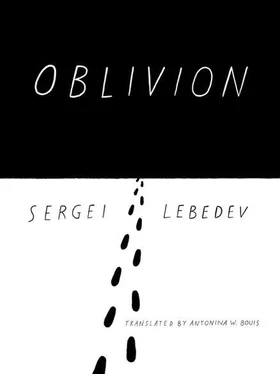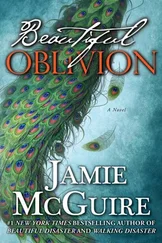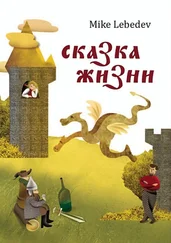I stood there, knowing there was nothing more to ask, it was all there in the photo. Get out, get out as fast as I could; I just wanted to find out where the wife and son were buried so I could visit their graves and thereby complete my descent into the past. The old man told me where to look in the local cemetery; but when I started making my hasty farewells, he stopped me.
The old man talked; he knew that the end was near and that he could “confess,” and whatever he said, whatever he admitted, I would not even dare to berate him, so fragile was his health; perhaps this was the first time he could talk freely and he used that freedom to deal with me. “You want to stay clean,” he said. “It won’t work, I’ll dirty you up!”
No, he didn’t see me as a pure boy whose naiveté was irritating; he didn’t want to prove that everyone is more likely to do evil rather than good, he didn’t want to make generalizations; nor did he try to justify himself through a person’s total dependence on circumstances. He hated me because I came from a world with mobile phones, foreign cars, Internet, Wi-Fi, trips abroad, bowling; the world had changed, people chose not to remember anything rather than remember with fear or remember with sorrow, and the old man whispered—thinking he was shouting—that he had been head of the execution squad, he had seen a bullet fly through the body of a goner and the goner did not die because while wounds endanger a healthy body, a person in extreme emaciation no longer senses a wound as a wound, he has great endurance in the face of death. The old man whispered, thinking he was shouting, that the abandoned slag heaps of the mine where they tossed the bodies attracted bears for many years; he whispered that he had shot people himself, with a Nagant rifle, he whispered that there are still undiscovered graves near the town, he knew where, he could show me if I didn’t believe him; the old man was scared.
He wasn’t afraid of what he had done; he became frightened when he realized that he, head of the execution squad, was nothing in today’s world; they did not spit in his face but nor were they afraid of him. He, who had outlived not only his victims but those who could have served as witnesses about and for them, was alone; all the executions, all the murders were forgotten, an entire era had settled to the bottom of memory, and he, locked inside it, was trying to prove that he had existed; the old man could not tolerate the fact that the evil he had wrought no longer existed as evil; he had killed, and the world had finally shut its eyes and when it opened them again it was as if nothing had ever happened. The world did not notice, and the old man was deprived of the only, almost otherworldly, perverted spiritual support in a criminal’s self-perception: knowing that you have done something irreversible, irreparable, once and forever, that you took the place of God; that your act would not be smoothed over or forgotten.
I managed to escape; the old woman unlocked the door and I ran down the stairs carrying the photograph, which I had forgotten to return. I planned to go back to the hotel and lock myself in—everything around me, everything I had seen and felt came back in one sensation, that this world was born of Grandfather II, that he had touched the ground with a shovel blade and the ground responded, opened up, and now it could not be closed, it could not be reversed; the town stood on a fault, and the past had more power over it than the present.
I didn’t reach the hotel; the Volga I had taken from the station came out around a corner and blocked my way; if I hadn’t recognized the car I might have gotten away, instead for a few seconds I thought that the driver had also recognized me and wanted something; then three men jumped out of the car, and in the backseat I saw the captain from the address office; I ran, they caught me, hit me in the back, and bent back my arms.
They opened the trunk about a half hour later; it was getting dark, the car was parked at an enormous man-made lake—one of the settling pools of the mining works, filled with greenish acidic mass; nearby a bird struggled in the chemical mixture—they said birds were poisoned by the pool’s evaporation and fell into it; the lump of dirt fluttered, gurgled, and only its beak—the sludge of the pool did not stick to it—opened and shut, a tiny bellows filling the lungs.
They made me kneel at the edge of the pool; dried vomit and blood stained the concrete; apparently, this place had been used before.
The captain and the driver stayed in the car; they smoked, the dashboard glowed green, the city lights flickered in the distance, a train carrying ore moved along the tracks, the diesel locomotive had long disappeared around the curve but the train kept going, and I suddenly realized that I was afraid I wouldn’t see the final train car; that fear hid the greater fear, that they would beat me, drop me over the edge and dip my face into the settling tank. I looked over my shoulder: three men behind me, I couldn’t tell which one was in charge; the tattoos on their hands were like stamps on the damp linens of platzkart railway bunk beds, the hands twitched and danced as if they’d undergone an electrical shock; the three were talking about what to do with me and the one missing the right ring finger was the most adamant.
They had kept an eye out for me, the captain had mentioned something to somebody about the foolish heir, and they were going to torture me about nonexistent money, jewels, and safe deposit boxes; my entire inheritance was the photograph in my jacket pocket. And then I looked closer at the one missing a finger and I recognized the features of the fugitive I tried to feed in the distant mountains by the abandoned prison camp; this was his younger brother or twin, unless I was hallucinating.
I started to talk; I told him that I knew how his brother died, knew the place where he was buried; I saw the stump of the ring finger and I thought that the one who had died nameless had left that notched ring behind.
I was right: his brother really had escaped—that was the last they had heard of him—and vanished; they let me up and asked questions, I told them how I had found him and tried to save him and then buried him. My captors discussed whether or not I had turned him in to the cops and decided they would have heard that he was returned to the prison colony and given an extra term. Had I killed him? I told them to look at me: Did I look like a killer? They laughed.
Things were turned around; the captors weren’t all that sure I was a rich heir, they were checking the captain’s tip; they drove me to a cheap eatery for me to draw a map of the fugitive’s grave; the captain sat next to me on the backseat and regarded me respectfully: he was certain that I had fooled the three men and was probably almost in awe of my cunning.
They asked me what I was doing in the town; and contrary to reason, I gave them a quick version of the story. The adopted grandson of the camp warden—I told the bandits about Grandfather II and they listened with respect; I was one of them, I was related to the camp world and it turned out that barbed wire not only separates, it unites: they even apologized for twisting my arms. There was no distinction between prisoners and guards, thieves and turnkeys—in any case, in the past; there was only a man who had founded their town, a man in whom they sensed a greater, senior power—and they thought they could have found a common language with him. Grandfather II, like them, bent and broke people, and now that the old feuds were becoming insignificant, they missed the arbitrariness elevated into law—they thought they would have found a place for themselves in those days, a place on the side of force, and the reflection of the force would have lent legality and justification to their base passion for torture. “I would have worn a uniform in those days,” said one; and I saw that all three would have worked as guards—freedom did not interest them, power did; the fugitive, the big brother, would have killed anyone suggesting it, but these men, younger, would have accepted it as their due; they did serve, in fact, as private security at the plant.
Читать дальше












